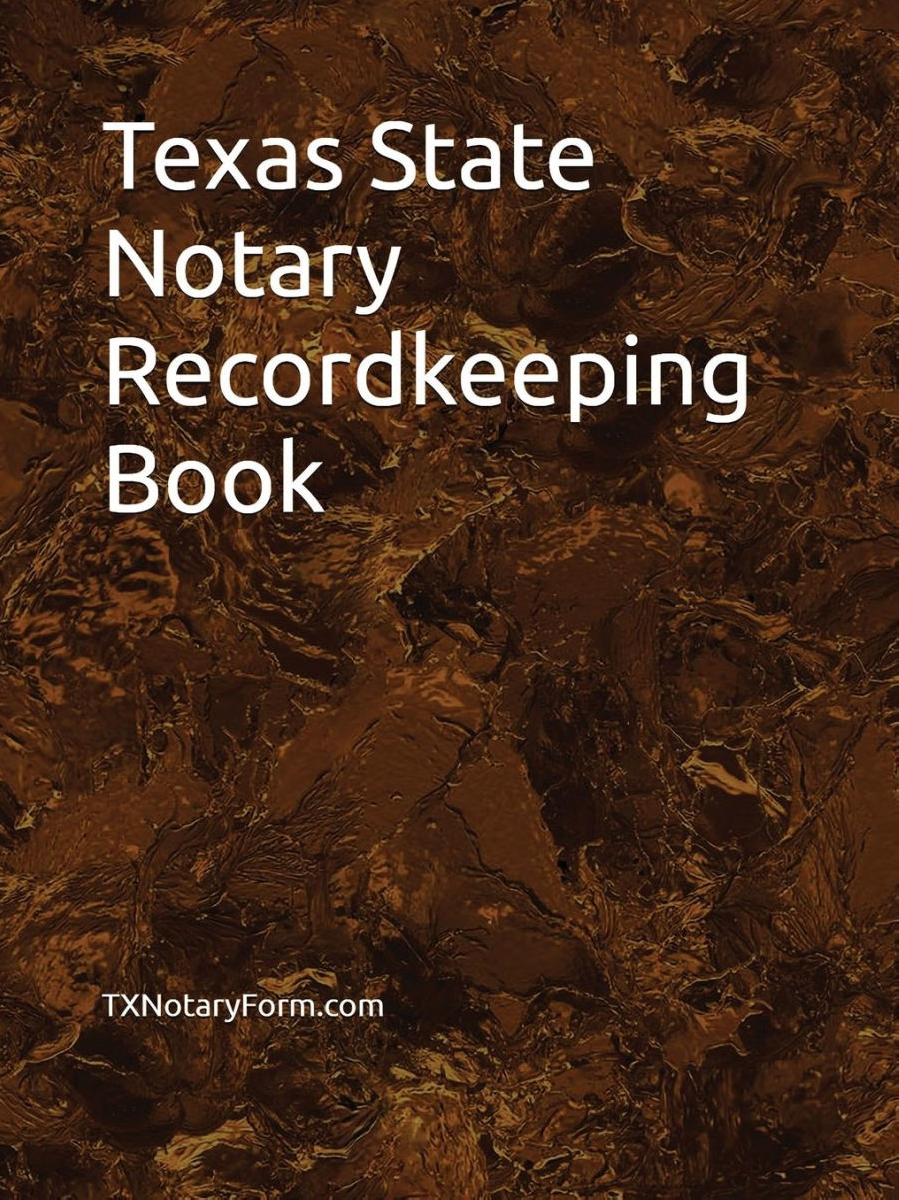

According to Tex. Gov’t Code Ann. § 406.014, a Notary Public is required to keep a record book of all notarial acts. This requirement applies regardless of whether you charge a fee for your notary services.
This book designed to cover GOVERNMENT CODE, TITLE 4. EXECUTIVE BRANCH, SUBTITLE A. EXECUTIVE OFFICERS,
CHAPTER 406. NOTARY PUBLIC; COMMISSIONER OF DEEDS. Sec. 406.014. NOTARY RECORDS.
Including changes effective from January 01, 2025

The Premium Hardcover Texas Notary Record Book complies with Texas Government Code § 406.014, including updates effective January 1, 2025. Texas law requires notaries to maintain a clear log of every notarial act, and this book is designed for that purpose, allowing space for 280 entries with sections for all required information: date, instrument description, signer details, identification methods, witness information, and property details when applicable.
With a durable, glossy hardcover, this book is built for long-term use, making it suitable for both full-time notaries and office professionals. Its professional appearance enhances credibility, while the securely bound pages facilitate fast, accurate data entry. Whether handling affidavits, deeds, or acknowledgments, this book is a dependable, compliant solution.
The Lightweight Softcover Texas Notary Record Book complies with Texas Government Code § 406.014, including important updates that will take effect starting January 1, 2025.
This record book is compact and portable, making it specifically designed for mobile notaries who require legal compliance without compromising the quality of their records.
With ample space for up to 280 detailed entries, it includes all necessary information: notarization dates, complete signer details, identification methods used, witness data if required, and a brief description of the notarized instrument. The softcover format allows for easy carrying in a briefcase or bag.
This notary journal strikes the perfect balance between legal rigor and usability, making it the ideal companion for notaries who are always on the go.
Every Notary Public takes a special oath to fulfill their duties with care and dedication. To help ensure they’re held accountable in their role, they need to secure a $10,000 bond with the Secretary of State.
A notary bond is required to obtain or renew a Texas Notary Commission. Proof of the bond is included with all pre-selected notary packages.
If a claim is made due to a notarial error, the bond company will pay the claimant, but the notary is legally obligated to reimburse the bond company. EAmp;O insurance covers such claims, protecting the notary.
Buying a bond alone does not make you a notary; either you or a bond agency must submit your application to the Secretary of State.
still you have any questions? contact our team via info@txnotaryform.com
Yes, a Texas notary public is required to maintain a record book. A notary cannot record any identifying numbers from the signer's identification card, driver's license, or passport in their record book. However, a notary is allowed to record expirate date of the signers ID.

In Texas, a Notary Public must keep a record book of all notarial acts, as stated in Tex. Gov’t Code Ann. § 406.014. This rule applies whether or not you charge a fee for your notary services. This requirement is found in the Government Code, Title 4, Executive Branch, Subtitle A, Executive Officers, Chapter 406, Notary Public; Commissioner of Deeds, Section 406.014, which covers Notary Records. Changes to this law will take effect on January 1, 2025.
